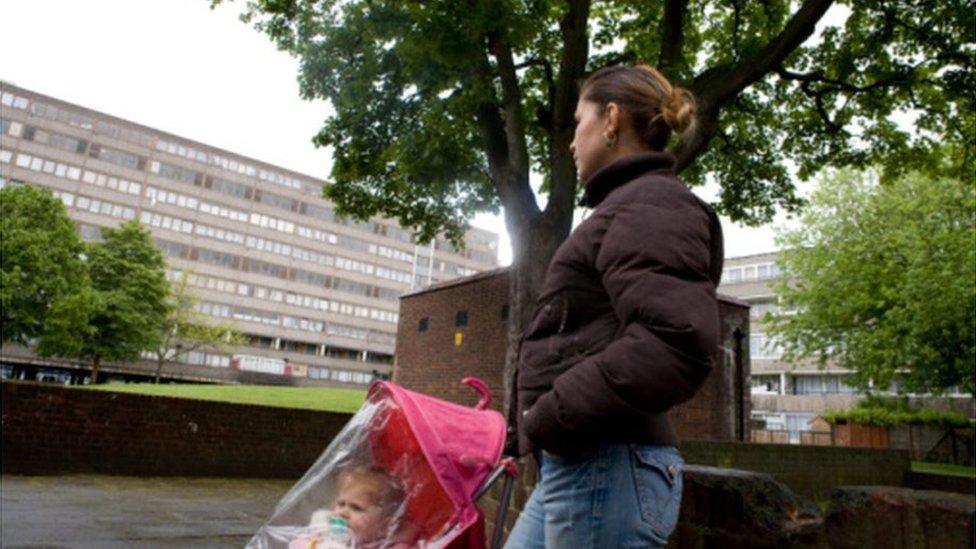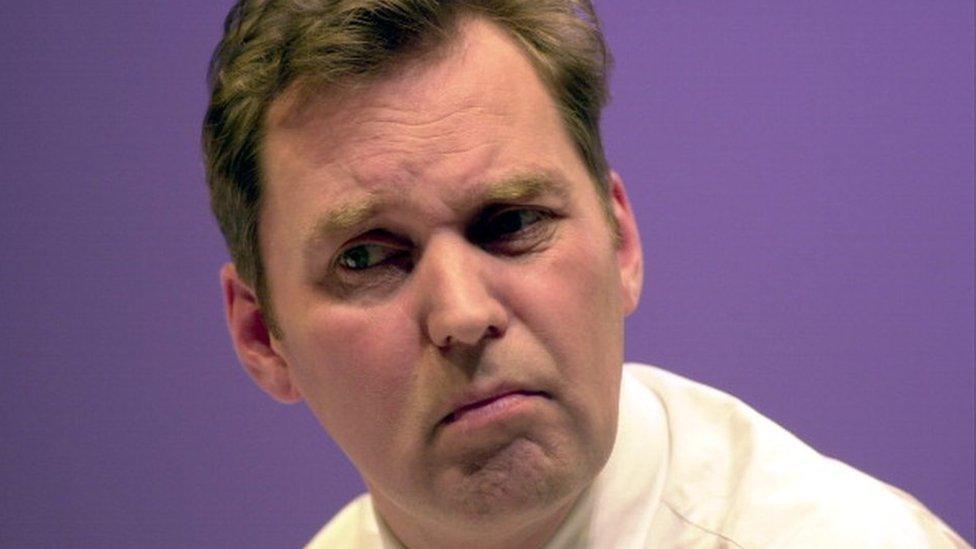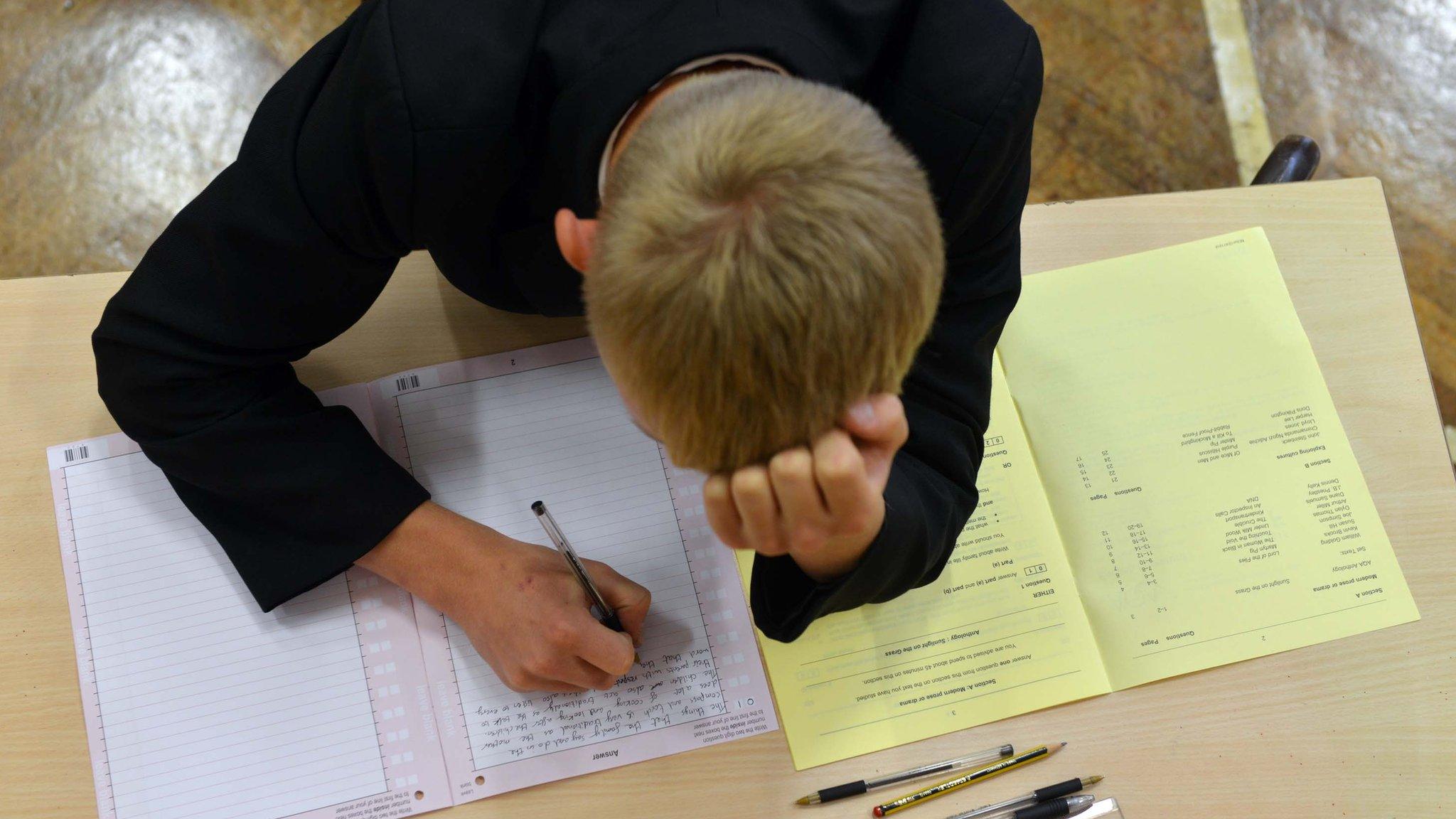Divisions in society leading to 'sour mood'
- Published

The Social Mobility Commission's report warns of an "us-and-them society"
Two decades of government efforts to improve social mobility have failed to reduce divisions in Britain's "us-and-them society", a report says.
The Social Mobility Commission, external warns of a sour public mood and says the divides in British society are unsustainable socially, economically and politically.
The commission found failings at every key stage in people's lives.
Chairman Alan Milburn said "whole tracts of Britain felt left behind" in "volatile and uncertain times".
The commission used a traffic light system to assess progress in improving social mobility at:
early years - amber
school - amber
training, further education or university - red
work - red

Economic growth in London and other cities has left parts of England behind and at risk of being "hollowed out" as people leave in search of opportunities, according to the report.
The income and wealth divide has become "more acute" - between 1997 and 2017, the bottom fifth of households saw their incomes increase by just over £10 a week compared with £300 for the top fifth.
And a new generational divide has emerged, with growing inequality between the old and young, who are more reliant than ever on their parents for help to buy homes.
The report says successive governments have failed to make social mobility the cornerstone of domestic policy, with long-term progress sacrificed to short-term change.
Its other key findings include:
At current rates of progress, it will take 15 years before all children are school-ready by the age of five and 40 years before the attainment gap between rich and poor at that age is closed
There is currently no prospect of the gap between poorer and wealthier children being eliminated at either GCSE or A-level
In higher education, it will take about 80 years before the participation gap between students from rich and poor areas closes
Young people's wages have fallen 16%, taking pay to below 1997 levels
One in five people are on low pay, a consistently higher proportion than in similar nations
'Deeply corrosive'
Former Labour minister Mr Milburn said: "The public mood is sour, sometimes angry."
He said whole sections of Britain felt left behind and were not getting a fair chance to succeed.
"The growing sense that we have become an us-and-them society is deeply corrosive of our cohesion as a nation," he said.

Mr Milburn: "The public mood is sour, sometimes angry"
"If we go on as we have been, the divisions that have opened up in British society are likely to widen, not narrow.
"There is a growing sense in the nation that these divisions are not sustainable, socially, economically or politically.
"There is a hunger for change."
Among the recommendations, the commission said the government should:
Establish a national ambition to ensure the attainment gap between poorer five-year-olds and their peers has been halved within a decade
Abandon plans to extend grammar schools and instead focus on developing collaborative approaches to turning around failing schools ( The government has already reined in its plans for a new generation of grammars, with the Queen's Speech promising only to work to bring forward proposals for school improvement "that can command a majority").
Ensure higher education is available through further education colleges in social mobility "cold spots"
Aim to make the UK the country with the lowest level of low pay in the OECD by 2030
A Department for Education official said tackling social mobility was "at the heart" of the government's ambition to make Britain a country that "worked for everyone".
"There are 1.8 million more pupils in good or outstanding schools than in 2010, and we are delivering three million apprenticeship places, opening up access to our higher education system and investing £500m a year into technical education.
"However, we know that more must be done, and that's why last year we launched our £72m Opportunity Areas programme.
"This is bringing together local businesses, schools and councils in 12 social mobility 'coldspots' to create better opportunities for young people."
Child Poverty Action Group chief executive Alison Garnham said: "This is a powerful report from the commission, which demonstrates a country increasingly characterised by division and reflects the terrible toll that wave after wave of social security cuts has taken on our families and communities.
"It reads as an indictment of successive governments' failure to back struggling families with policies that would help them build better prospects."
- Published27 February 2017

- Published26 January 2017

- Published16 November 2016
